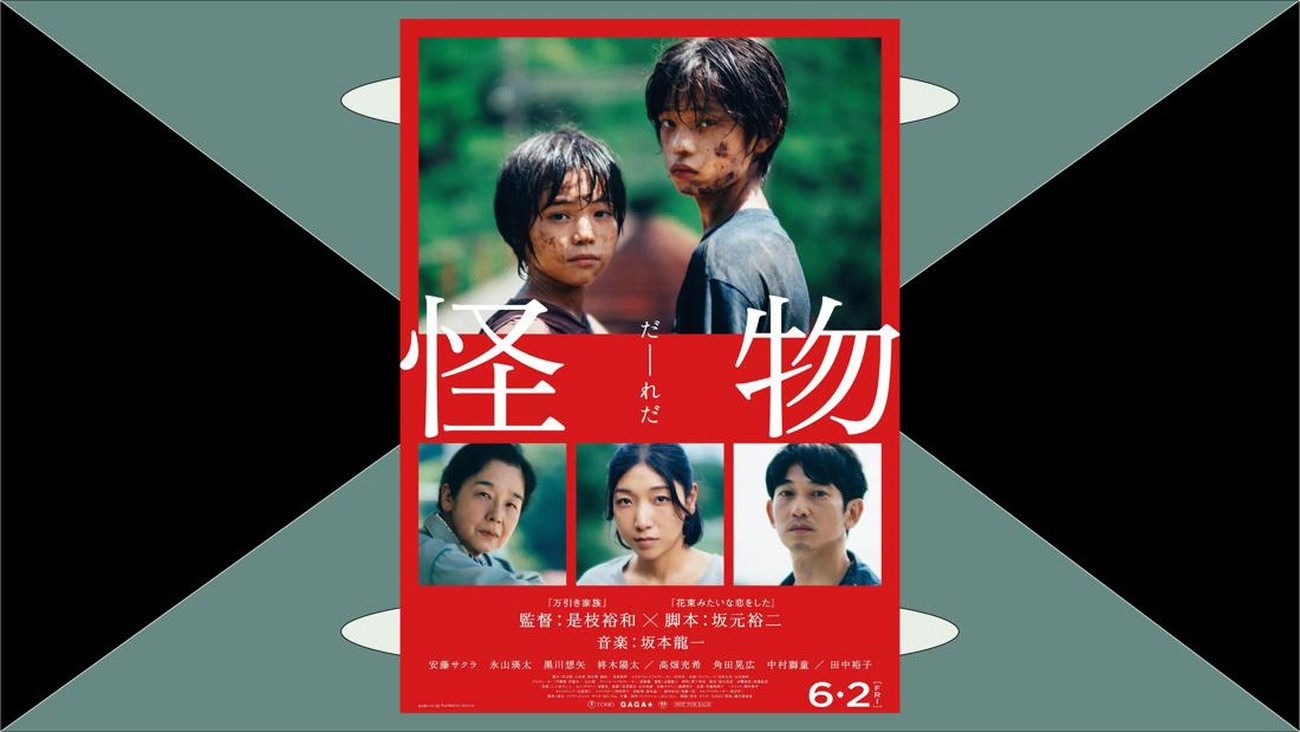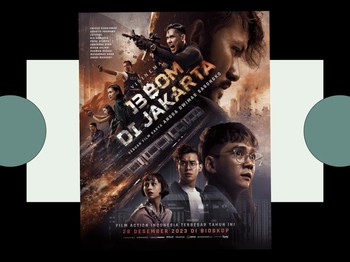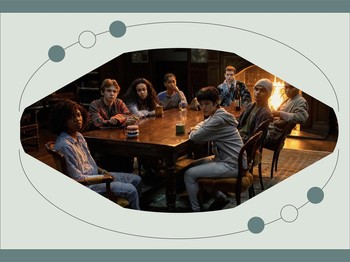Spring usually evokes the image of blooming flowers, along with warmer weather and longer days. As the plants that were once buried under the snow can now grow again, the season is also associated with rebirth or renewal. With the warmth spreading, however, spring can also bring unstable weather. Brewing storms, outpouring rains, and floods came along with new growth. With all its beauty and turbulence, it is only apt that youth is often referred to as the springtime of life.
Review of Monster
In Hirokazu Kore-eda's Monster (怪物, Kaibutsu), these parallels are masterfully juxtaposed, through layered narratives that all point to one whole truth. The story opens with the seemingly quiet lives of single mother Saori Mugino (Sakura Andō) and her son Minato Mugino (Sōya Kurokawa). The two witnessed a fire burning a hostess bar to the ground from their homes, while Minato asked a question whether someone can still be considered human if their brain is switched to that of a pig's. Through a rumor, Saori then heard that the burnt-down establishment is a frequent haunt of Minato's homeroom teacher, Mr. Hori (Eita Nagayama). This rumor, along with the first mention of Hori's name, will prove to be significant to Saori.
It was not long before Minato showed signs of issues at school. Once when Minato didn't come home until late, Saori had to come search for him far and wide. When she did find him, Minato was screaming "Who's the monster?" inside a dark tunnel. After questioning him on his withdrawn behavior and signs of physical abuse, Minato was quick to blame his homeroom teacher for inflicting both mental and physical wounds—one of which was saying that Minato has a pig's brain.
The distraught Saori then confronted the school's principal and staff on the actions of Mr. Hori—who received nothing more than formal bows and half-hearted apologies. When nothing actually changed and Saori confronted the school again, she was hit with the accusation that her son, Minato, has been bullying his classmate, the quiet Yori Hoshikawa (Hinata Hiiragi).
What follows is a layer-by-layer examination of what is actually going on with Minato and Yori—first, through the perspective of Mr. Hori and then through the perspective of Minato. We learned that Mr. Hori is not what he seemed at the beginning, and Minato is too. We expectedly keep guessing on who or what the titular "monster" is, while the answer that the films lead to is nothing that simplistic.
The underlying darkness that pervades the film's beginning gradually makes way for a gentle and more nuanced truth. What happens between Minato and Yori's shared loneliness presents a delicate portrayal of reckoning with youth and its complexity. Through it, we learned about where the words "pig brain" actually came from, and the painful truth behind it.
At its heart, Monster is about two gentle individuals caught up between societal norms and difficult situations, trying to come to terms with newfound feelings and the perceptions of their environment. Scripted by screenwriter Yuji Sakamoto and scored by the late musician Ryuichi Sakamoto, Monster marries masterful cinematography (by Ryuto Kondo), masterful narrative, and poignant soundtrack into an intricate, humanistic whole.
In a particularly riveting moment, one of the key characters uttered, "Have we been reborn?" nearing the end of the film. It provides an open-ended conclusion that somehow feels optimistic. It feels like the calm after the storm has finally passed.
(alm/tim)


